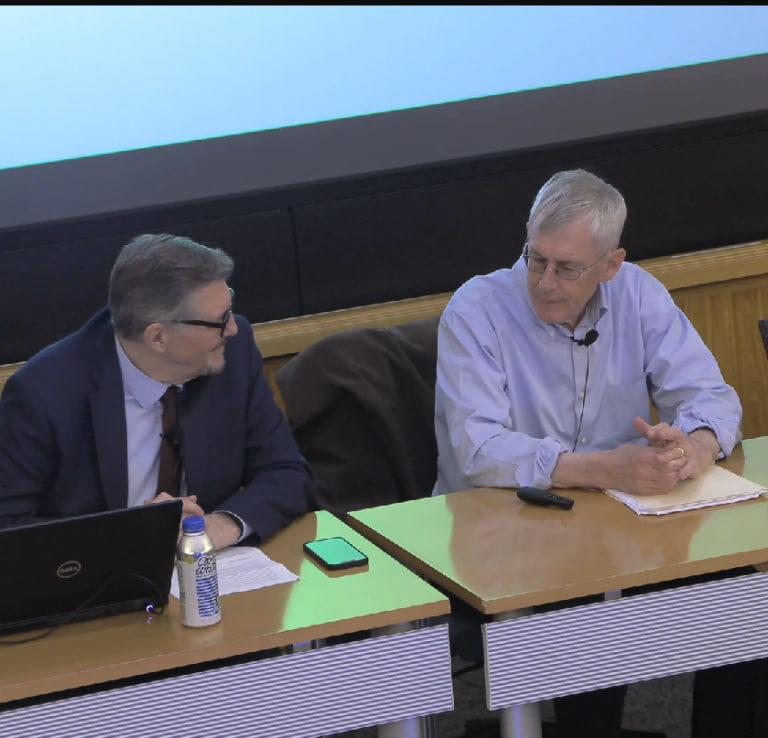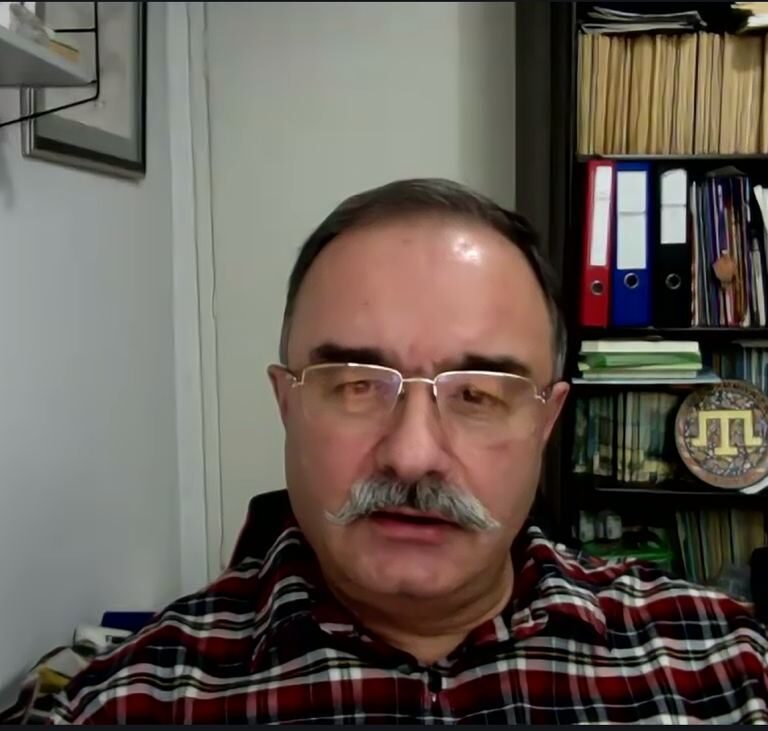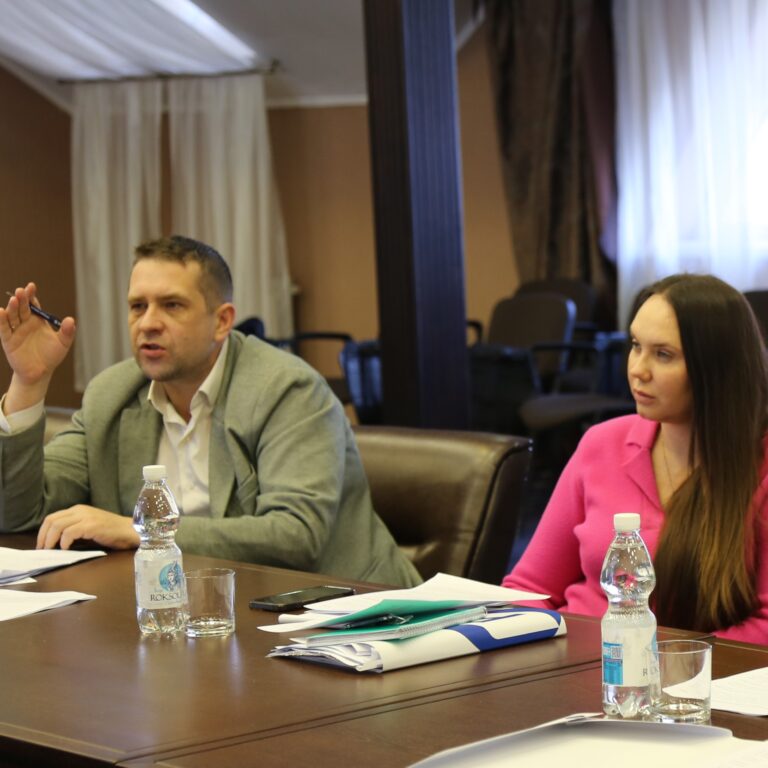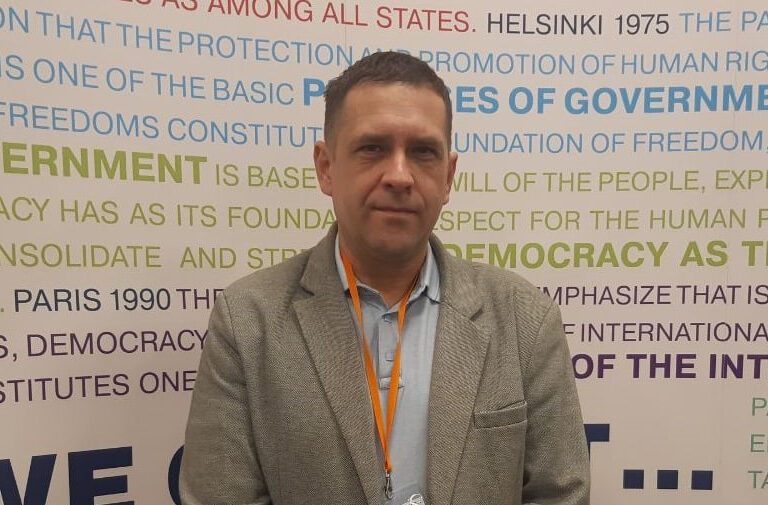On June, 27 our Association’s experts took part in side-event “Role of Civil Society in Struggle against Discrimination on Russia-occupied Territories of Ukraine”, organized by Crimean Tatar Resource Center in Vienna at OSCE Supplementary Human Dimension Meeting “The Role of Civil Society in the Promotion and Protection of Tolerance and Non-Discrimination”, describing aggressor’s hate speech, discrimination in access to information, in property issues and regarding ecologic situation.
ARC’s expert Olena Stadnik reported at the event on property rights’ violation by Russian invaders, as in framework of so called “nationalisation”, so in ways of direct looting and robbery. Example of illegal “nationalization” the building of the Mejlis of the Crimean Tatar People in Simferopol was pointed as example of such discriminative acts.
Expert stated that in common fake “authorities” declared on fake “nationalization” of hundreds real estate objects, some of them, like the “Bakhchisaray cement plant” and some others in area of producing building materials and construction, were seized in direct commercial interests of illegal “Crimean speaker” Vladimir Konstantinov and his “Consol” business empire.
Ms. Stadnik stressed that some other “nationalized” objects, described by our Association, such as “Alef-Vinal-Krym” wine-making production, “Uksnab” structure in Krasnoperekopsk, Crimean solar power plants of “Activ Solar”, villa “Elena” in Yalta”, “Proliv” fish cannery plant in Kerch and others may be part of broad machinations of Crimean collaborators and Russian special services.
Association’s expert Tsybulko Olesia reported on event all digital and Internet “media”, broadcasting in Russia-occupied Crimea are illegally controlled by Russian de-facto “authorities” and are used for facilitation the Russian state’s criminal tasks in ongoing aggression against Ukraine.
Expert pointed that Ukrainian-origin journalists and Crimean Tatar bloggers and activists are repressed in Crimea by illegal Russian “authorities” and their punitive structures. Also the Crimea became a place on illegal imprisonment and enforced disappearances for Ukrainian bloggers and journalists kidnapped in 2022 by Russian occupiers from Kherson and Zaporizhzhya regions, including Melitopol.
Expert stressed also on example of illegal provider “Miranda Media” as a “daughter” of the Russian concern “Rostelecom” and on its criminal activities in the occupied Crimea, Henichesk and Melitopol, directly financed by “Russia” Bank.
In his report professor Borys Babin stressed on Russian invaders’ discriminative acts against ecologic rights of civil population of Crimea and Kherson region after Russia-committed explosion the Kakhovka HPP that is direct war crime, act of genocide and ecocide; the researches of our Association on issues of international ecocide qualification were presented to OSCE during the event.
Expert Anna Prykhodko stressed in her report on event on measures on countering discrimination on Russia-occupied territories, reflected in the Plan of Urgent Measures to Counter Russian Aggression from Crimea, to Protect Interests of State, Ukrainian Citizens and Legal Entities in Crimea, adopted in June, 2018,
Also the relevant provisions of Strategy for De-Occupation and Reintegration of Crimea, that was approved by Decree of the President of Ukraine in March, 2021, and o the Governmental Action Plan for Implementation of this Strategy, approved by prescript in September, 2021 and of its new version adopted in April, 2023, were described.
Ms. Prykhodko pointed that issues of programs, strategies and action plans against discrimination will be important part of in decisions of new Conference on Security and Cooperation in Europe that is our common inevitable future, as some OSCE experts told earlier.
Representatives of Crimean Tatar Resource Center, Eskender Bariiev and Liudmyla Korotkykh described in their reports Nazi policy of Russian invaders, committing systematic racial discrimination against indigenous Crimean Tatar people on Russia-occupied territories of Ukraine, also current proceeding of Mejlis’ legalization under Ukrainian legislation, that started in June was described.







